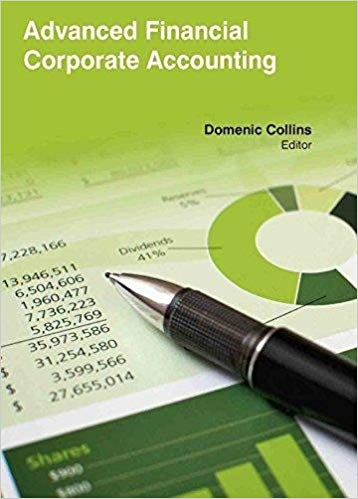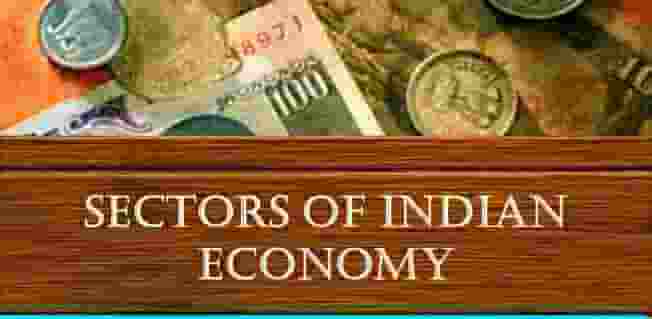| COURSE OUTCOMES: | ||||||||||
| CO1 | Understanding the development in evolution of corporate law in India , emerging regulatory aspects including Companies Act, 2013, | |||||||||
| CO2 | Understand the legal concept of director, their qualifications, appointment, vacation, removal and Corporate Governance. | |||||||||
| CO3 | Know about the legal and Procedural aspects as regards to appointment, conditions for appointment. | |||||||||
| CO4 | Understand how the members of a company or the directors of a company can exercise their powers and can bind the company | |||||||||
| CO5 | Know the provisions of Companies Act 2013(Section 271- 365) | |||||||||
| CO6 | Learn the Concepts and modes of winding up. | |||||||||
Department of Commerce
Students’ Code of Conduct
Rule 1
Mobile phones must be kept away from visibility and on Complete Silentmode during lecture sessions, unless otherwise stated by the faculty. Student(s) found violating the rule will be suspended from the on-going session instantly and attendance will be denied.
Rule 2
Students are not allowed in the classroom withoutcalculatorsfor all accounts, income tax, and other numeric subjects (like Business Statistics). Non – adherence or sharingof calculators will lead to suspension fromthe on-going session and denial of attendance for the subject.
Rule 3
Students must carry the prescribed textbook/study material(for accounts, income tax, English and other numeric subjects like Business Statistics) in the class. Sharing of Textbooks/study material is not allowed and non adherence of the rule will lead to suspension from the on-going session and denial of attendance.
Rule 4
Classroom Discipline:
Ø Noise in Classroom in the presence of teachers :
Such behaviour will be strictly dealt with.
Ø Sleeping in lecture sessions :
Strictly not allowed. Will lead to suspension from the on-going session.
Ø Late entry in classrooms is not permitted.
Grace time:
First hour – up to 8:35 am
Subsequent lectures – up to 5 minutes of commencement of class
Ø Eating/chewing(gums) during class sessions is not allowed. Will lead to suspension from the on-going class.
Ø Offensive language and misconduct in classrooms will not be tolerated in any case. Students will be put through the Discipline Committee. Any such incidents against faculty especially will lead to immediate suspension from classes until meeting with parents.
- Teacher: GISA GEORGE
| Programme: Bachelor of Commerce (General) | |||||
| Academic Year: 2019-2020 | |||||
| Course Title: Advanced Corporate Accounting | |||||
| Course Code: BC 608 HPW: 5 | |||||
| Course Type: DSE Credit: 5 | |||||
| Semester: VI Section A & B | |||||
| Course Objective: The main
objective of the course is to gain knowledge of AS-19 & 21 and format
accounts. It also aims at:
1) Providing an understanding of the presentation and analysis of
Financial reporting for the owners as well as external users.
2) Comprehend the concepts and standards underlying the accounting
procedures used to measure business performance of select corporate groups. |
|||||
| Course Outcome: On completion of the course the students : CO1) Acquaintance with the regulatory environment and framework in which the companies are registered. CO2) Will acquire a strong foundation in accounting and reporting requirements of the Companies Act. CO3) Will acquire the ability to account for a range of advanced financial accounting issues and prepare consolidated accounts for a Corporate Group. CO4) Apply the accounting procedures for Lease in the books of Lessee and Lessor. CO5) Understand the influence of inflation on the purchasing power of money. CO6) Understand the Scope of Social Resonsibility Accounting CO7) Familiarizing the concept of Human Responsibility Accounting. CO8) Computation of HRA, accounting price level changes and inflationary accounting. |
| Reference Books: These books gives comprehesive understading of theoretical concepts and aspects of coursework. | |||||
| 1. Corporate Accounting: R.L.Gupta, M.Radha Swamy, Sultan Chand 2. Advanced Carporate Accounting: Srilatha Reddy, Himalaya 3. Advanced Carporate Accounting: Dr. Thangapandi, PBP 3. Advanced Accounting: Tulsania, TataMcGraw-hill Publishing Company 4. Corporate Accounting: Jain & Narang, Kalyani Publications 5. Advanced Accounting: S.M.Shukla, Sahitya Bhavan 6. Corporate Accounting: Prashanta Athma, Himalaya Publishers. 7. Advanced Accounting (Vol. II): Chandra Bose, PHI | |||||
| Session’s Teaching – Learning Plan (55 Minutes) | |||||
| Time (Minutes) | Topic | Teaching – Learning Plan | |||
| 5 | Entry of Students and Faculty into class room | ||||
| 5 | Recap & Question Hour of Previous Session | Lecture & Discussion | |||
| 35 | Topic for the Day | Lecture & Discussion | |||
| 5 | Doubts Clarification & Question and Answers | Interaction | |||
| 5 | Conclusion and Summary | Lecture | |||
| *Assessment Procedure (100 Marks) | |||||
| Internal Assessment (Average of Two Internals 15 Marks each) | 15 Marks | ||||
| Section A – Multiple Choice Questions – 10X1/2=5M | |||||
| Section B – Fill In The Blanks – 10X1/2=5M | |||||
| Section C – Answer the following in Single Statement – 5X1=5M | |||||
| Assignment | 05 Marks | ||||
| Assignment task will be given during the regular sessions, student should submit as per the deadlines adhering to the guidelines instructed by the course instructor. | |||||
| Semester End Examination | 80 Marks | ||||
| Section A – Answer Any Five of the Following – 5X4=20M | |||||
| Section B – Answer all the questions – 5X12=60M | |||||

- Teacher: Dr. SRI SAI CHILUKURI
| Course Objective: To equip the students with the knowledge regarding basics of Indian Economy | ||||||
| COURSE OUTCOMES | ||||||
| CO1 | Understand the importance of one of the core sector in India that is ' AGRICULTURE '. | |||||
| CO2 | They would learn about distribution system and type of Agriculture, Food security and Logistics. | |||||
| CO3 | Know the Concept of Rural credit including the role of RRB's and NABARD. | |||||
| CO4 | Understand the role of tertiary sector of India. | |||||
| CO5 | They would learn and gain knowledge about LSI and SSI and labour laws related to the subject. | |||||
| CO6 | They would be well equipped with the knowledge of foreign exchange and banking sector in India. | |||||
Department of Commerce
Students’ Code of Conduct
Rule 1
Mobile phones must be kept away from visibility and on Complete Silentmode during lecture sessions, unless otherwise stated by the faculty. Student(s) found violating the rule will be suspended from the on-going session instantly and attendance will be denied.
Rule 2
Students are not allowed in the classroom withoutcalculatorsfor all accounts, income tax, and other numeric subjects (like Business Statistics). Non – adherence or sharingof calculators will lead to suspension fromthe on-going session and denial of attendance for the subject.
Rule 3
Students must carry the prescribed textbook/study material(for accounts, income tax, English and other numeric subjects like Business Statistics) in the class. Sharing of Textbooks/study material is not allowed and non adherence of the rule will lead to suspension from the on-going session and denial of attendance.
Rule 4
Classroom Discipline:
Ø Noise in Classroom in the presence of teachers :
Such behaviour will be strictly dealt with.
Ø Sleeping in lecture sessions :
Strictly not allowed. Will lead to suspension from the on-going session.
Ø Late entry in classrooms is not permitted.
Grace time:
First hour – up to 8:35 am
Subsequent lectures – up to 5 minutes of commencement of class
Ø Eating/chewing(gums) during class sessions is not allowed. Will lead to suspension from the on-going class.
Ø Offensive language and misconduct in classrooms will not be tolerated in any case. Students will be put through the Discipline Committee. Any such incidents against faculty especially will lead to immediate suspension from classes until meeting with parents.

- Teacher: GISA GEORGE
| COMMERCE LAB | ||||||||
| Academic year | 2019 - 2020 | |||||||
| Semester(s) | VI | |||||||
| Course code &Title | BC606 | Commerce Lab | HPW : 4 HRS CREDITS: 4 | |||||
| Instructor | Ms. P.Harini | Marks : 100 | ||||||
| Course format | Different teaching and learning pedagogies will be used to enhance learning | |||||||
| Course Description | Commerce Lab provides practical exposure of the processes and procedures followed by organizations in conducting commercial practices. The lab provides practical orientation to students by linking the subject syllabi with practical training in the lab. | |||||||
| Course Objectives | C01 understand the importance of licence and related documents for establishments C02 coherent knowledge of the theoretical and professional disciplines of banking. C03 Understand legal provisions related formation of a company C04 Imparting practical knowledge as most of the returns are submitted through Internet C05 To develop global competency and keep them updated with recent practices in the business world C06 Practical exposure of the processes and procedures followed by organizations in conducting commercial practices. | |||||||

- Teacher: HARINI PAGADALA
Course Objective:
To acquire Managerial Accounting decision-making techniques and reporting methods.
Course Outcomes:
CO1: Apply Managerial accounting and its objectives in a way that demonstrates a clear understanding of ethical responsibilities
CO2: Analyze cost-volume-profit techniques to in a way determine optimal managerial decisions
CO3: Prepare a master budget and demonstrate an understanding of the relationship between the components; CO4: Perform cost variance analysis and demonstrate the use of standard costs in flexible budgeting making Apply managerial accounting and its objectives e guidelines for selecting
CO5: Identify the most profitable set of products or services
CO6: Identify relevant cost in decision
- Teacher: RUPINI B